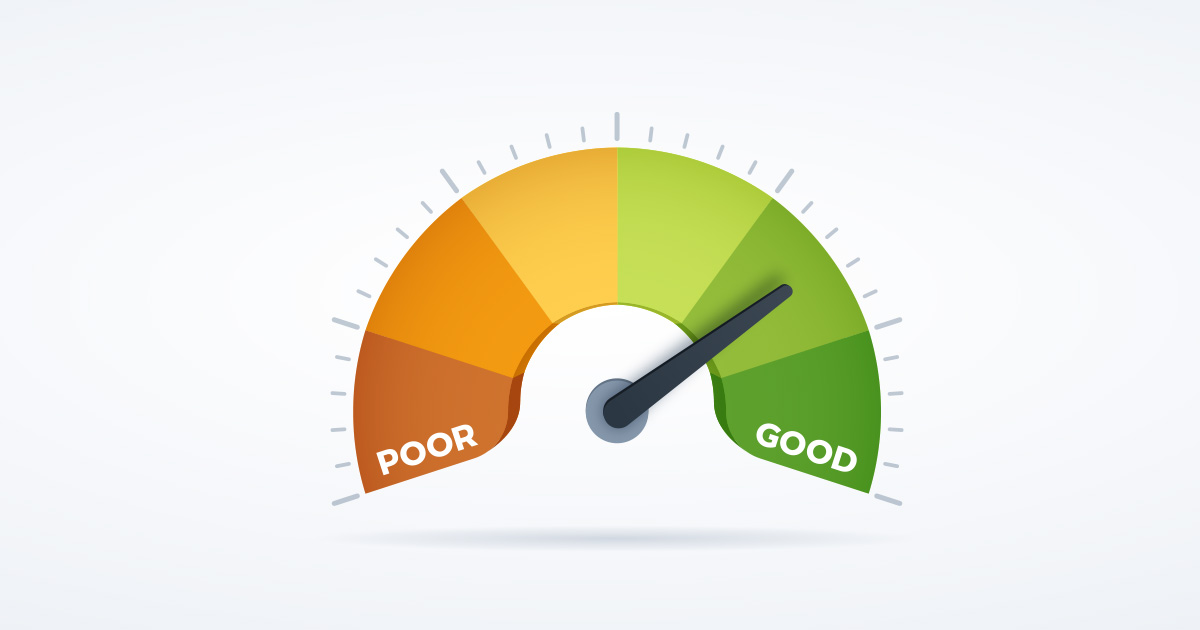You hear the word “credit score” all the time, but do you really know what it is and what it means to your financial future? If you answered “no”, don’t worry, you’re not alone. A study showed that one in eight Americans don’t even know what their credit score currently is and 71% of those surveyed were unaware of the negative impacts a bad credit score can have.
You’ve probably heard people say things like, “I don’t check my credit score because that will hurt it,” but is that true? There are a lot of myths out there about credit scores, so we decided to look at few of them to make sure you know the truth about credit scores.
Before we jump right in, here are a few quick facts about credit scores:
- What is a credit score? A credit score is a number that can range anywhere from 300 to 900 that shows lenders a consumer’s creditworthiness.
- Why is it important to have a good credit score? Lenders use credit scores to evaluate how likely you are to repay loans in a timely manner. The higher your credit score, the better you look as a borrower to potential lenders.
- What is a good credit score? Credit score ranges are roughly categorized from very poor to excellent.
- Very Poor = 300 – 579
- Fair = 580 – 669
- Good = 670 – 739
- Very Good = 740 – 799
- Excellent = 800 – 900
Now that we’re grounded in credit score facts, it’s time to bust some common myths.
Myth #1: Checking your credit score will automatically make it drop.
This is half true. A credit check conducted by either you or other businesses, such as property management companies verifying your lease/rental agreement information, is known as a “soft pull,” and will not lower your credit score. Having a lender run your credit score, (when applying for a new auto loan, for example), is known as a “hard pull.” This type of credit check can lower your credit score up to five points.
Myth #2: My income plays a role in my credit score.
False, your income is not a factor in your credit score. It is true that your income can have an impact on your ability to get a desired loan since lenders consider your income to determine if you have the ability to pay your bills. But this consideration is entirely separate from your credit score. Your income is not even listed on your credit report, which determines your credit score. What is included in a credit score? While the percentage varies by the company used to monitor credit-risk, on average, credit score is made up of:
- Payment history (35%)
- Amounts owed (30%)
- Length of credit history (15%)
- New credit (10%)
- Credit mix (10%)
Myth #3: Only older adults need to worry about their credit.
Nope. Credit can be applied for as soon as you turn 18*. You might think that credit won’t play a role in your life until you apply for a home loan years down the road, but it could easily be an important factor sooner.
Credit scores can be pulled by potential employers, housing rental companies or car insurance providers. If you don’t have any credit, these individuals might decide that they don’t have enough information to determine if you’re a financial risk or not. And as we mentioned above, with credit history accounting for 15% of your credit score, establishing credit early can help ensure you have a long credit history when you apply for that “down the road” home loan. Looking for ways to start your credit history? Learn more about Verve credit cards to see if one might be a good fit for you.
*You may be able to start building credit even earlier if you have a co-applicant. For example, if a 16-year-old takes out a car loan with a parent as a co-applicant, they begin building credit with each loan payment they make.
Myth #4: You can’t get a loan unless your credit score is above 700.
False. Individuals obtain loans with credit scores below 700 all the time. Having a credit score above 700 puts you in the “good” credit score range, but it isn’t necessarily a benchmark you must meet before a financial institution will loan you money. However, just because you are able to get a loan with a less-than-desired credit score, it might not be the amount or terms you were hoping for, meaning you may have a higher interest rate and pay more over the life of your loan.
The higher your credit score, the better interest rate you will qualify for. In addition, if your credit score is below a certain threshold (which is determined and varies by the lender), you may be required to pay a larger down payment.
Myth #5: Getting rid of my credit card will help boost my credit score.
The truth is, it depends. While you may think canceling a credit card will instantly increase your credit score, in reality, it could have the opposite result. Credit scoring models don’t measure risk based on how much credit you have available. Instead, they look at how much of your available credit you’re using. This is called your credit utilization. When you close that unused credit card, you’re reducing the amount of available credit, causing your credit utilization number to go up, which could negatively impact your credit score. Aside from that no-balance credit card helping your credit score, you never know when it might come in handy during a financial emergency.
We know terms like “credit score” and “credit utilization” can sound confusing and intimidating, but we hope debunking these common credit score myths helps point you in the right direction. If you’re looking to start your credit history or improve your existing credit score, schedule a time to meet with one of our team members virtually or in-person.






 Federally Insured by NCUA |
Federally Insured by NCUA |  Equal Housing Opportunity |
Equal Housing Opportunity |